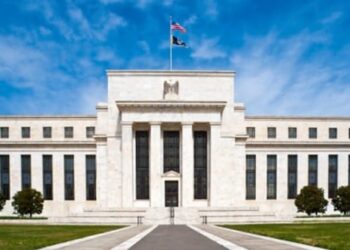The Centre for Policy Development (CPD) has responded to the government’s climate-related financial disclosure consultation paper from December, calling for standardised climate disclosure rules covering listed and private companies, financial institutions, and government entities.
While the government’s consultation paper pointed to large listed businesses and financial institutions as needing to provide greater transparency on how they are responding to climate change and supporting the transition to net zero, CPD said that government entities, such as the Future Fund, should be held to the same standard applied to banks, superannuation funds, and large listed companies.
Specifically, in its submission to Treasury, CPD recommended a phased roll out of an “economy-wide” disclosure framework, beginning with select public authorities, large listed companies, and other climate-exposed entities.
Toby Phillips, CPD sustainable economy director, said the transition towards net zero requires a comprehensive picture of climate-related risks and opportunities from both public and private sectors.
“To manage risks and convert opportunities at a national and sectoral level, policymakers and business leaders alike need clear and consistent information,” Mr Phillips said.
“Listed companies required to disclose scope three emissions in their supply chain should not be forced into guesswork because a privately held supplier can choose not to report its own emissions.
“When companies are reporting on their supply chains, a shipment of iron ore or a load of cement from one supplier could have a firm number on it, but the same product from a competitor would not. That won’t lead to a well-functioning market,” Mr Phillips added.
CPD additionally highlighted the risk of investors taking climate-exposed businesses private to dodge the oversight proposed in the consultation paper.
The think tank warned that listed companies who are required to disclose would have to resort to “guesswork” unless large private companies in their supply chains make their own disclosures.
In emphasising the importance of ensuring government entities are “playing by the same rules as everyone else”, Mr Phillips said: “Government spending and investment is 25 per cent of the economy.”
“Large entities like Australia Post, the Future Fund, or Defence Housing Australia play significant roles in the economy, and they should be setting the standard, not lagging behind,” he explained.
“Global capital markets will be pricing sovereign climate risk just as they will be pricing institutional risk, and one clear set of rules will build the confidence needed for a swift, just, and orderly transition within Australia and internationally.”
Moreover, CPD recommended disclosures adhere to globally recognised frameworks, including the ones established by the Taskforce on Climate-related Financial Disclosures and the International Sustainability Standards Board.
The Albanese government published a consultation paper on the development of a new Australian climate risk disclosure framework in December 2022.
At the time, Treasure Jim Chalmers, Assistant Treasurer Stephen Jones, and Minister for Climate Change and Energy Chris Bowen said: “This internationally aligned framework will provide business and investors with the clarity and certainty they need to manage climate risks and invest in new opportunities,” they said.
“It will ensure large business and financial institutions are providing more information and greater transparency on how they are responding to climate change and supporting the transition to net zero.”
The government also disclosed that it intends to apply appropriately tailored requirements to comparable Commonwealth public sector corporate entities and investment funds.







